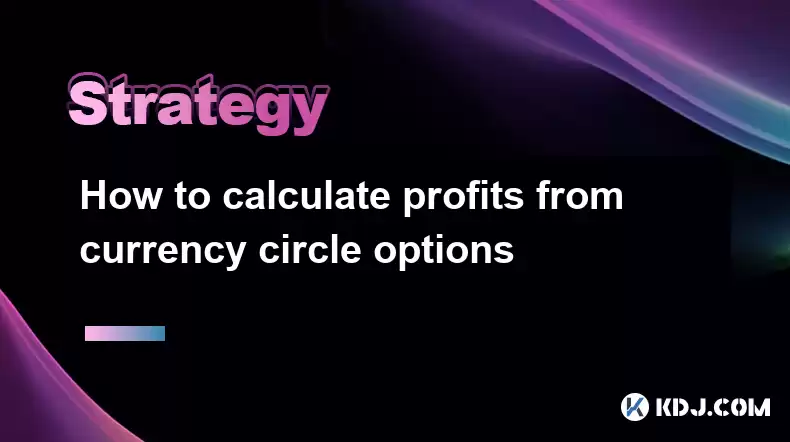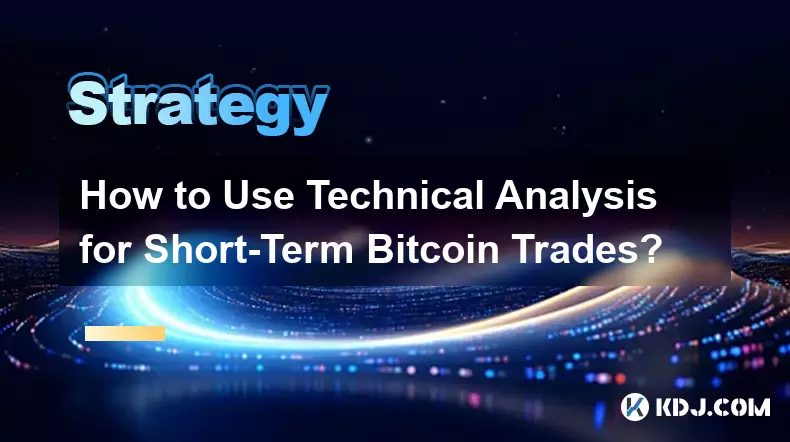-
 bitcoin
bitcoin $87959.907984 USD
1.34% -
 ethereum
ethereum $2920.497338 USD
3.04% -
 tether
tether $0.999775 USD
0.00% -
 xrp
xrp $2.237324 USD
8.12% -
 bnb
bnb $860.243768 USD
0.90% -
 solana
solana $138.089498 USD
5.43% -
 usd-coin
usd-coin $0.999807 USD
0.01% -
 tron
tron $0.272801 USD
-1.53% -
 dogecoin
dogecoin $0.150904 USD
2.96% -
 cardano
cardano $0.421635 USD
1.97% -
 hyperliquid
hyperliquid $32.152445 USD
2.23% -
 bitcoin-cash
bitcoin-cash $533.301069 USD
-1.94% -
 chainlink
chainlink $12.953417 USD
2.68% -
 unus-sed-leo
unus-sed-leo $9.535951 USD
0.73% -
 zcash
zcash $521.483386 USD
-2.87%
How to calculate profits from currency circle options
To calculate profits from Currency Circle options, traders must analyze the premium, strike price, expiration date, and the underlying asset's price movements, ultimately computing the profit or loss based on the contract's terms.
Jan 08, 2025 at 06:52 pm

- Identify the types of options contracts.
- Calculate the premium paid for the contract.
- Determine the strike price and expiration date of the contract.
- Analyze the underlying asset's price movements.
- Compute the profit or loss based on the contract's terms.
Options contracts come in two main types: calls and puts.
- Call options give the buyer the right, but not the obligation, to buy an underlying asset at a specified price (strike price) before a certain date (expiration date).
- Put options give the buyer the right, but not the obligation, to sell an underlying asset at a specified price (strike price) before a certain date (expiration date).
The premium is the price paid to enter into an options contract. It is typically expressed as a percentage of the underlying asset's price.
- For call options, the premium represents the price paid for the right to buy the asset.
- For put options, the premium represents the price paid for the right to sell the asset.
The strike price is the specified price at which the underlying asset can be bought (in the case of call options) or sold (in the case of put options) under the contract.
The expiration date is the last date on which the options contract can be exercised.
4. Analyze the Underlying Asset's Price MovementsTo determine the potential profit or loss from an options contract, it is essential to analyze the price movements of the underlying asset.
- If the underlying asset's price moves in the direction anticipated, the options contract will likely yield a profit.
- If the underlying asset's price moves in the opposite direction of the anticipation, the options contract will likely lead to a loss.
The profit or loss from an options contract is calculated based on the difference between the underlying asset's price at the expiration date and the strike price, adjusted for the premium paid.
- For call options, if the underlying asset's price is above the strike price at expiration, the profit is the difference between the two minus the premium paid.
- For put options, if the underlying asset's price is below the strike price at expiration, the profit is the difference between the two minus the premium paid.
A: Options and futures are both derivative contracts that give the holder the right to buy or sell an underlying asset. However, options give the holder the option to exercise the contract, while futures contracts obligate the holder to buy or sell the asset at the expiration date.
Q: What are the risks of currency circle options?A: Cryptocurrency options carry substantial risks, including the potential for losing the entire premium paid, as well as the potential for significant losses if the underlying asset price moves significantly against the anticipated direction.
Disclaimer:info@kdj.com
The information provided is not trading advice. kdj.com does not assume any responsibility for any investments made based on the information provided in this article. Cryptocurrencies are highly volatile and it is highly recommended that you invest with caution after thorough research!
If you believe that the content used on this website infringes your copyright, please contact us immediately (info@kdj.com) and we will delete it promptly.
- Shiba Inu Developer Defends Leadership Amidst Price Criticism, Eyes Future Developments
- 2026-02-01 03:50:02
- Dogecoin's Volatile Dance: Navigating Hidden Opportunities Amidst Nuclear Risk
- 2026-02-01 04:25:01
- MEXC's Gold Launchpad Ignites Zero-Fee Investments in Tokenized Gold Amidst Gold's Record Rally
- 2026-02-01 04:40:02
- DOGEBALL Unleashes L2 Gaming Revolution with Explosive Crypto Presale
- 2026-02-01 04:35:01
- GPT-5's Foresight, Solana's Frontier, and Ethereum's Enduring Gauntlet: Navigating the New Crypto Epoch
- 2026-02-01 04:35:01
- Crypto Coaster: Bitcoin Navigates Intense Liquidation Hunt as Markets Reel
- 2026-02-01 00:40:02
Related knowledge

How to Develop a Crypto Exit Strategy to Secure Your Profits?
Jan 22,2026 at 10:19am
Understanding Market Cycles and Timing1. Cryptocurrency markets operate in distinct phases: accumulation, markup, distribution, and markdown. Recogniz...

How to Find and Invest in Promising DePIN Crypto Projects?
Jan 19,2026 at 06:19pm
Understanding DePIN Fundamentals1. DePIN stands for Decentralized Physical Infrastructure Networks, combining real-world hardware deployment with bloc...

How to Find Liquidity Pools with the Lowest Impermanent Loss Risk?
Jan 25,2026 at 05:59pm
Fundamental Characteristics of Low-Risk Liquidity Pools1. Stablecoin pairs dominate the lowest impermanent loss environments due to minimal price dive...

How to Analyze Market Sentiment Using the Crypto Fear & Greed Index?
Jan 24,2026 at 09:39am
Understanding the Crypto Fear & Greed Index1. The Crypto Fear & Greed Index is a composite metric that aggregates data from multiple sources including...

How to Hedge Your Crypto Portfolio Against a Market Crash?
Jan 19,2026 at 03:40pm
Risk Assessment and Portfolio Allocation1. Determine the total exposure to high-volatility assets such as memecoins or newly launched tokens without a...

How to Use Technical Analysis for Short-Term Bitcoin Trades?
Jan 25,2026 at 01:00pm
Understanding Candlestick Patterns1. Bullish engulfing formations often appear after a sustained downtrend and signal potential reversal points where ...

How to Develop a Crypto Exit Strategy to Secure Your Profits?
Jan 22,2026 at 10:19am
Understanding Market Cycles and Timing1. Cryptocurrency markets operate in distinct phases: accumulation, markup, distribution, and markdown. Recogniz...

How to Find and Invest in Promising DePIN Crypto Projects?
Jan 19,2026 at 06:19pm
Understanding DePIN Fundamentals1. DePIN stands for Decentralized Physical Infrastructure Networks, combining real-world hardware deployment with bloc...

How to Find Liquidity Pools with the Lowest Impermanent Loss Risk?
Jan 25,2026 at 05:59pm
Fundamental Characteristics of Low-Risk Liquidity Pools1. Stablecoin pairs dominate the lowest impermanent loss environments due to minimal price dive...

How to Analyze Market Sentiment Using the Crypto Fear & Greed Index?
Jan 24,2026 at 09:39am
Understanding the Crypto Fear & Greed Index1. The Crypto Fear & Greed Index is a composite metric that aggregates data from multiple sources including...

How to Hedge Your Crypto Portfolio Against a Market Crash?
Jan 19,2026 at 03:40pm
Risk Assessment and Portfolio Allocation1. Determine the total exposure to high-volatility assets such as memecoins or newly launched tokens without a...

How to Use Technical Analysis for Short-Term Bitcoin Trades?
Jan 25,2026 at 01:00pm
Understanding Candlestick Patterns1. Bullish engulfing formations often appear after a sustained downtrend and signal potential reversal points where ...
See all articles





















![THIS IS THE HARDEST COIN TO GET [POLY DASH] THIS IS THE HARDEST COIN TO GET [POLY DASH]](/uploads/2026/01/31/cryptocurrencies-news/videos/origin_697e0319ee56d_image_500_375.webp)




















































